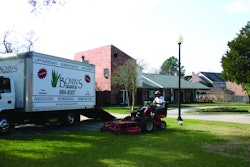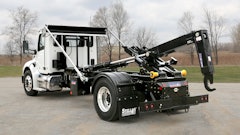Contractor Brad Groff has been going to trade shows and conferences for years. He's learned that without a clear plan of attack, attending conferences can amount to nothing more than additional overhead for your business.
Groff keynoted the GLTE Conference in Grand Rapids, MI, back in early January. His session, "Get the most out of your conference," was designed to help attendees figure out what their focus should be—so they would be more likely to take what they learned at the conference and parlay it into something actionable in their business.
"Most business owners go to a conference in hopes of finding that golden nugget that will change their life," Groff says. "They hear a good speaker and get all fired up. They share that excitement with their staff. But the staff doesn't react the way the owner would hope. They kind of roll their eyes and say, 'Here he goes again.'"
There are a few main reasons why:
- This same scenario has unfolded before. The owner is inspired and has a brilliant idea. However, there is no real plan of attack, no accountability, and ultimately nothing comes of it.
- Too many ideas are being thrown out there at once. The odds of successfully implementing any of them are low—again because of a lack of focus and accountability.
- Some of the ideas are simply not good ones—due to bad timing or lack of resources to properly implement them, or maybe just in general.
Focus on what needs to be focused on
Given today's realities, Groff says most contractors don't have the wiggle room in their budgets to throw money or personnel at things that won't pay off. That's why it's important to head to a conference with a clear focus in mind.
Groff says there are four main areas of your company you need to think about: finances, marketing, sales and operations. Scrutinize each of these four areas to determine which needs the most work right now. Discuss this with your key managers to make this determination.
Familiarize yourself with the conference
Once you've identified your focus, pull together any additional staff that will be attending the conference with you. Take a look at the schedule of events. Identify those seminars and workshops that will help you in your area of focus.
Attack it
Groff advocates having everyone attend the same workshops. That way nothing will get missed—and you'll have a few different perspectives on a very important topic.
"Most companies can't implement more than one or two big changes at a given time," Groff reminds. "So why have people running in all different directions? It might work if you're a really big company and have people you can put in charge of specific initiatives. But if you're an average-size company, it's probably best to focus on one thing at a time."
Keep attacking it
After the conference is over, don't throw those workshop handouts on your desk and ignore them for the next three months. "We actually spent a couple of hours on the last night of the conference discussing what we'd learned," Groff relates. "We confirmed that the proposed idea was something that made sense for our company and matched our core values. We identified goals and who would be responsible. We also set a timetable."
By establishing this kind of accountability right off the bat, you can actually turn those brilliant ideas you pick up at conferences into actionable plans for your business.
Brad Groff co-founded River Valley Landscapes in 1991 to give homeowners in South Central, PA, an alternative to what most landscapers traditionally offered. Today he runs the company's Landscape Design Build division and engages in coaching and public speaking. Visit www.thinkrvl.com for more information.
















![Gravely Pro Turn Mach One My23 Dsc03139 Edit 1200x800 5b2df79[1]](https://img.greenindustrypros.com/mindful/acbm/workspaces/default/uploads/2025/10/gravely-pro-turn-mach-one-my23-dsc03139-edit-1200x800-5b2df791.BucBnDoN22.jpg?ar=16%3A9&auto=format%2Ccompress&fit=crop&h=135&q=70&w=240)


